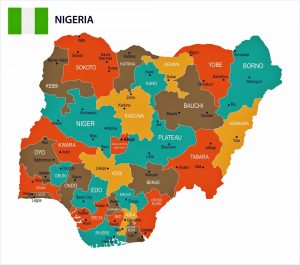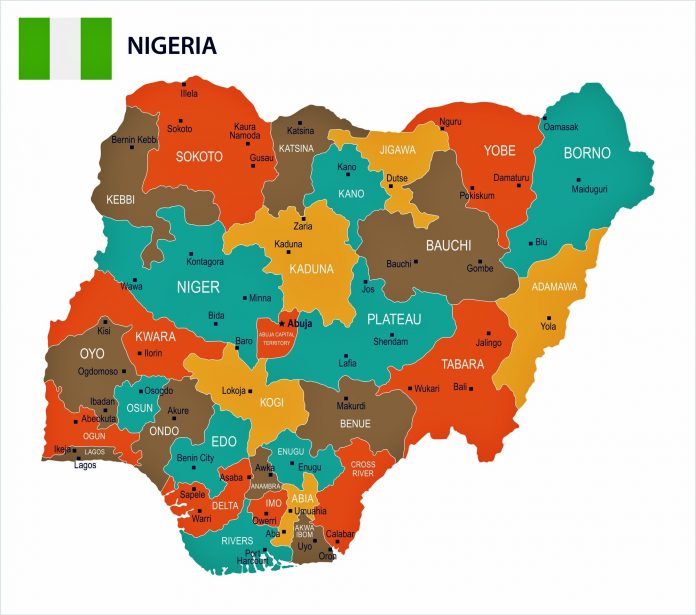
By Adebayo Obajemu
As the 2023 presidential election draws near, there are fears across the country that the election may not hold. This view is anchored on the high level of insecurity amidst government’s helplessness.
The nation teeters precipitously on the brink, as the fabric of security snaps on the beams, and in the face of the looming anarchy the nation’s security architecture hiccups intermittently, making the populace to despair forlornly.
Penultimate week, what remained of the national value, the sanctity of place of worship was violently violated when gun men stormed St.Patrick Catholic Church in Owo, Ondo State, killing over 70 worshippers.
The sacrilege widely condemned by both Islamic and Christian leaders has thrown the nation in mourning.
The security operatives said to be on the trail of the attackers are yet to be apprehended, but the market women in Owo according to reports resorted to magic and ritual invoking Ogun, the Yoruba god of iron to fish out the killers.This kind of thing is very rare in Yoruba land, and only resorted to in extreme situations such as the Owo incident’s.
Tragedies such as Owo’s may have put a question mark on the viability of the 2023 presidential election, given that it will be difficult to conduct elections across the country in an atmosphere of overwhelming insecurity and uncertainty.
Professor Adeagbo Moritiwon, a political scientist said that ” this administration kid glove treatment of bandits and outlaws threatening the peace of the country can only be contextualized as premonitory of a wider plan to make 2023 election impossible.
This view resonates as Dr. Obaremi Obamo, an expert in African politics at the University of California at Davis explained in his telephone conversation with this medium:
” Allowing bandits to prowl across the country, refusing to name terror sponsor and allowing Adamu ,the APC chairman to attempt foisting consensus candidate in person of the Senate president on NWC and the party are food for thought. Buhari’s administration has soft spot for the people perpetrating terror everywhere because of ethnic solidarity. We still have to be on our guards in respect of the 2023 election.
In the view of Prophet Oludele Samson Akinpelu of The Living God Freedom Church, ” Buhari has not been able to tackle insecurity, and if this trend of lawlessness continues the 2023 election may be in peril. The president should do more to rein in this insecurity. The radical cleric advised government to jettison ethnic sentiment and confront this lawlessness for the sake of posterity and history.
Not long ago, the prelate of the Methodist Church of Nigeria, Samuel Uche, a high profile respected Christian leader was abducted in Owerri axis and only regained his freedom after the Church coughed out N100 millions in ransom money.
After his release, the revered Christian leader painted a grim, frightening picture of the spectre of insecurity, saying his kidnappers were Fulani.
He stated that the bandits told him of plans to invade the Southeast and Southwest claiming that Nigeria belongs to the Fulani race.
Zamfara has been a perpetual grim reaper, as tens are killed every other day.The victims are predominantly Hausa community.
Weeks after “peace meeting,” bandits again struck a Zamfara community, killing five residents
Bandits attacks in Zamfara and Katsina are becoming more frequent despite efforts by some community leaders to make “peace” with the gunmen.
Professor Toyin Falola, widely regarded as leading African historian wrote recently to capture the high level of insecurity in the land:
“The killings occurred in the Yoruba town of Ọ̀wọ̀ – one of the most sacred towns of the Yoruba (it is called “Ọ̀wọ̀” because of its sacredness); and remember, Ọlọ́wọ̀ is believed to be the last of the eight sons of Ọ̀rúnmìlà – the Yoruba god of wisdom and divination. It occurred in a Church almost directly facing the palace of the Olowo of Owo; what an insult! It occurred in the town of the seating governor of the state, Governor Akeredolu. It occurred in the home of one of the most revered Yoruba politicians and statesmen, Adekunle Ajaṣin. It occurred right in the centre of the town (around Oja Oba). It can’t get any worse than that!
The assault on Owo is seen by many as double sacrilege: attack against the church and the important place of Owo in Yoruba history.
Falola continued: “These are trying times for every peace-loving, industrious, and patriotic Nigerians. Watching our dear nation (our home and pride) degenerate into a theatre of unabating terror — from the enduring insurgency in the North-Eastern region to the banditry gradually engulfing the entire nation and the ugly acts of jungle justice — has to be the most harrowing experience we have endured since the civil war of 1967, which claimed over a million lives and nearly tore the country apart. If we could ascertain the exact number of Nigerians who have lost their lives from the early days of Boko Haram bomb attacks to this period of rampant killings and kidnappings, we might be compelled to rethink the comparative cost of the civil war.
Southeast used to be peaceful until recently when the administration incarcerated the leader of IPOB on multiple charges, meanwhile the sponsors of terror network are allowed to roam the land.
Many believe that the spate of insecurity in the South-East may not be the handwork of IPOB alone, as the abduction of Samuel Uche has revealed.
Some sinister agenda of some groups outside of the region are believed to have cashed in on the situation making it a major zone of insecurity, with rampant killings and the existence of a “state within a state” that makes its own rules.
On the whole, the last twelve weeks have been particularly difficult for the country, with government virtually doing nothing to stem the tide of brutal on our collective psyche as a people.
Scarcely recovering from the shock of the attack on the Abuja-Kaduna train, which left many dead and many others kidnapped and still languishing in the camp of their terrorist captors, the news came from Sokoto on May 12, of a student murdered in the most gruesome manner by her classmates for alleged blasphemy. Unknown to many, on that same infamous day, another innocent citizen, 37-year-old Sunday David Imoh, was brutally beaten, killed, and set ablaze in Lekki, Lagos State, because of a disagreement with an Okada rider over a transport fare.The perpetrators in these two incidents are of the same northern stock:
While the dust was yet to settle on that incident, a vigilante, Ahmad Usman, was attacked, killed, and also set ablaze in Lugbe, a suburb of Abuja, for refusing to listen to pleas to grant a pass to a trader who had stayed on in the market beyond a curfew. His offence was insisting that even if they begged him “in Allah’s name,” he would still effect the arrest. For that, he was branded a blasphemer and brutally murdered. Then there was Sunday’s terror attack at St. Francis Catholic Church, Ọ̀wọ̀, in Ondo State, where dozens of worshipers — including women and children — were gunned down in cold blood!
On June 5, 2022, gunmen suspected to be bandits abducted the mother of Abdulkarim Abdulsalam, the All Progressive Congress (APC), senatorial candidate of Kano Central.
The victim, identified as Laure Mai-Kunu was kidnapped by unknown gunmen on Monday, June 5 at her home, in Rangaza community, in Ungogo Local Government Area.
The latest incident at Ungogo Local Government Area, followed that of Takai Council Area, last month, where seven persons were killed by suspected bandits at Karfi community. The traditional ruler of that community was also kidnapped.
Kano has been largely spared the violence that has engulfed the Nigeria’s North-west region. But recent reports indicate that the violence, blamed on islamist affiliates locally referred to as bandits, may be fast spreading into the state.
Just last Thursday a photojournalist working with the Ebonyi State Government House was abducted, according to the News Agency of Nigeria (NAN).
The man, identified as Uchenna Nwube, was abducted by suspected kidnappers on Okigwe-Aba-Enugu Expressway.
Mr Nwube, was granted access to his phone by the kidnappers, and he informed reporters they abducted him at about 7 p.m. on Wednesday.
“I was kidnapped today, June 8, while returning to Abakaliki from Aba, and I had some people in my car.
Mr Nwube said his abductors were demanding N50 million ransom.
“I do not know how and when I can get such money,” he told fellow journalists over the phone. “Please, I need help.”
Abduction for ransom is now common place across various Nigerian cities.
Among many victims are politicians, entrepreneurs, and anyone with good financial worth, including school children, are easy targets.
Two clerics, including a Catholic priest, were recently abducted in Akwa Ibom State, Nigeria’s South-south.
Both clerics were later released, apparently after the payment of ransom.
Many analysts who spoke with this medium are of the view that the federal government is treating insecurity with kid gloves because of primordial consideration.
” I can tell you that in all of this, there is a discernible pattern. All the victims of kidnappings, gruesome killings since this administration came to power have been Hausa people in the north and the perpetrators are unknown gunmen. It is the same story in the southern part of the country”, Dr Aderemi Adeyemi, a retired political scientist told NATIONAL WAVES
He contended that if the reverse were the case, and the Fulani were the victims,the administration would have done something about insecurity. He cited cases where Fulani herdsmen killed people with impunity,in cases where the people retaliated the police or the military would move in to arrest people , whereas they did nothing when the first acts of atrocities were committed.
Dr Olufemi Omoyele director of Entrepreneurship at Redeemers University, who is also a commentator on public affairs told this medium that ” if the administration wanted to tackle insecurity it had the capacity to do so,but ethnic and other considerations would not allow them. We just pray that whoever will win the presidential election would tackle insecurity.
He further stated that unless the federal government moves away from the current lackadaisical attitude to insecurity, conducting elections in an atmosphere of overwhelming insecurity may prove difficult.
The Southeast of the country where sit at home subsists every Monday, and is rigorously enforced, and where atmosphere of fear envelopes the people as killings of innocent people intensify may not be feasible for elections until the intractable issues causing it are addressed.
What can lessen the tension is the release of the leader of IPOB, Daniel Kanu, and the administration has not shown such inclination to do so .
The most peaceful region for now is the Southwest, but analysts believe the Owo incident may be an attempt to test the waters. Security experts who spoke to NATIONAL WAVES are of the view that going forward the various groups behind the insecurity may intensify their odious acts of terror in order to make more demands on a government that care less.

